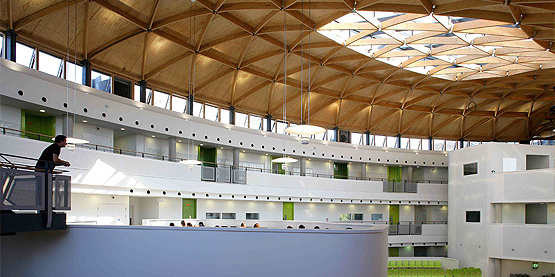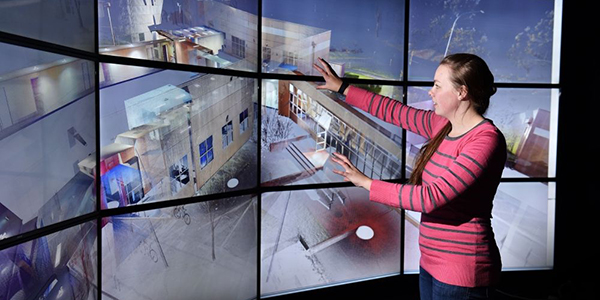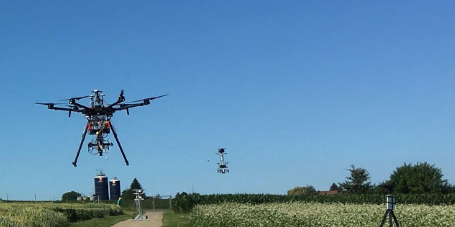Connecting with life across built, digital, and natural environments
The Schools of Architecture and Design; Geography, Planning, and Spatial Sciences; and Information and Communication Technology work in a syndicate of shared leadership.
Together, we are a vibrant centre for world-class research and learning and teaching and our staff, students, and alumni know how to develop and deploy clever technologies and designs to transform place and movement locally and globally.
Together, we have a mission to learn about, teach about, and investigate distinctive cultures and ecologies that exist here and in many other places – for Tasmania and from Tasmania to the world.
We are unified in a strong commitment to disciplinary expertise and interdisciplinary innovation. So we are keen to hear from others who want to address today's significant challenges and who want to create sustainable, smart, connected, and caring ways of living.
About us
Find out about us, our study and research opportunities, and our news.
Our Research
Our Syndicate research focusses on understanding the relationship between humans and the natural, built and digital environments. Our three disciplines each address diverse problems with direct societal significance. For instance, using spatial data to pioneer research in human and physical geography; establishing smart systems, applications and computational data modelling; and striving to develop sustainable design, and assess building design and performance using computer modelling.
Our research and our partners influence policy both locally and globally, and each discipline has aided the establishment of internationally renowned projects. The Syndicate of TED fosters diverse projects from novel drone technology designed to help understand our changing planet to smart soil sensors to enable famers to make decisions around irrigation.
Inclusion, Diversity & Equity Committee
The Inclusion, Diversity, and Equity Committee (IDEC) plays a key role in developing the Syndicate Inclusion, Diversity, and Equity Plan and progressively implementing it. IDEC operates in the broader context of the University’s inclusion, diversity, and equity principles. IDEC provides a forum to discuss inclusion, equity, and diversity issues. Members generate ideas and initiatives that build momentum, communicate, and reinforce shared values to support a culture of inclusiveness in the School.
Working with the College of Sciences and Engineering, the School leadership team, members of the Schools, and others, IDEC proposes and discusses initiatives to improve diversity and inclusion in the Syndicate. Among other things IDEC considers matters related to Indigeneity, (dis)ability, cultural awareness, conscious and unconscious bias, workplace customs, working style preferences, meeting arrangements, religious observance, gender equity, and diverse sexuality, gender, and other identities.





